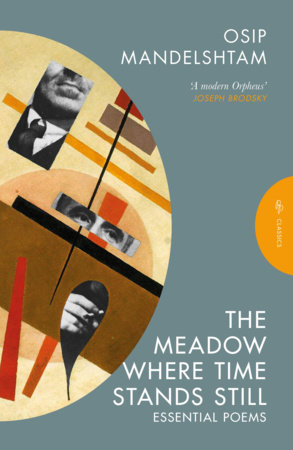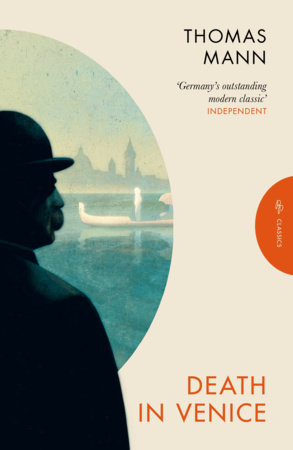Excerpt
Sevastopol Tales
Dawn is only just beginning to tinge the horizon above Mount Sapun; the deep-blue surface of the sea has already shed the darkness of night and awaits the first ray of sunlight to bring it out in a cheerful sparkle; a chilly mist blows in from the bay; the ground is bare of snow, all is black, but the biting frost of morning pinches your face and crackles underfoot; and only the distant, unceasing boom of the sea, interrupted now and then by echoing gunshots from Sevastopol, disturbs the morning quiet. The muffled sound of eight bells rings out on the nearby ships.
On the North Side, the daytime bustle slowly dispels the calm of night. Here a relief detachment of sentries marches by with a clatter of muskets; there a doctor is already hurrying to the hospital; further on, a soldier scrambles out of his dugout to splash his sunburnt face with icy water, turns towards the redden- ing east, hurriedly crosses himself and says a prayer; over there a tall, cumbersome camel-drawn
madzhara* creaks its way to the cemetery where its load of bloody corpses, piled almost to the top, will be buried… You walk on to the quay, where you are assailed by that peculiar smell of coal, manure, damp and beef; thousands of random objects—firewood, meat, gabions, flour, iron, and the like –lie in heaps by the quayside; soldiers from different regiments mill around, with and without their kitbags and guns, smoking, swearing at one another, and manhandling heavy loads onto the steamer which is moored by the quayside with its steam up; small boats for hire, loaded with all sorts of passengers—soldiers, sailors, merchants, women—moor and cast off from the quayside.
‘To the Grafskaya, your Honour? Come aboard.’ Two or three retired sailors stand up in their boats to offer their services. You pick the nearest boat, stepping over the half-decomposed carcass of a brown horse lying in the mud beside it, go aboard and make your way to the tiller. Now you have cast off. All around you, the sea is already gleaming in the morning sunlight; in front of you, an old sailor in a camel-hair overcoat and a tow-headed young lad are silently and doggedly working the oars. You look out at the enormous striped hulls of the ships scattered near and far over the bay, and the little black dots of boats moving across the sparkling azure water, and the beautiful bright buildings of the town across the bay, tinged pink in the rays of the morning sun; and the foamy white line of the boom, and the scuttled ships, with here and there a black masthead projecting forlornly out of the water, and far in the distance the enemy fleet, just visible on the crystal-clear skyline; and the frothing eddies and leaping salty bubbles raised by the oars; you listen to the regular beating of the oars, and hear the voices wafted to you across the water, and the majestic sounds of cannon fire in Sevastopol, which seems to
you to be growing more intense.
The thought that you too are in Sevastopol cannot fail to fill your soul with a sense of manliness and pride, making your blood course faster through your veins…
‘Your Honour! You’re making straight for the
Constantine!’ says the old seaman, looking round to see the course you are steering. ‘Bear a bit to starboard.’
‘She’s still got all her guns aboard,’ remarks the tow-headed lad, casting an eye over the ship as you pass it.
‘’Course she has; she’s new—Kornilov lived on board of her,’ says the old man, also looking at the ship.
‘My, just look at that one going off!’ exclaims the boy after a long silence, gazing up at a spreading white cloud of smoke that has suddenly appeared high over the South Bay, accompanied by the sharp crack of an exploding mortar bomb.
‘That’s
him, firing from his new battery today,’ says the old man, spitting imperturbably into his hand. ‘Well, press on, Mishka, let’s get ahead of that longboat.’ And our boat speeds ahead over the broad swell of the bay, and does indeed overhaul the heavy longboat loaded with sacks, awkwardly rowed by inexperienced soldiers; and we finally pull in alongside the Grafskaya quay, sur- rounded by a varied collection of other moored boats.
The quayside is crowded with a noisy, bustling throng of soldiers in grey, sailors in black and women in all sorts of colours. The women are selling bread rolls, Russian peasants carrying samovars are crying ‘Hot
sbiten!’*, and the first steps are littered with rusty cannonballs, bombs, grapeshot and cast-iron cannon of various calibres. A little further on is a wide open space with huge wooden beams, gun carriages and sleeping soldiers lying about; there are horses, waggons, green field guns, ammunition chests and stacks of small arms; soldiers, sailors, officers, women, children and merchants are moving this way and that; carts loaded with hay, sacks or barrels pass by; here and there you will see a mounted Cossack or officer, or a general in his droshky. The street on the right is closed off by a barricade, with small cannon mounted in the embrasures and a sailor sitting beside them, puffing at his pipe.
To the left is a handsome house with Roman numerals carved into its pediment, beneath which some soldiers are standing beside bloodstained stretchers. Everywhere you see the unattractive fea- tures of a military encampment. Your first impression is bound to be most unpleasant: this odd mixture of camp life and town life, the beautiful city with a dirty bivouac, is more than unsightly—it looks a repulsive mess. You may even feel that everyone is in a panic, rushing hither and thither and not knowing what to do. But take a closer look at the faces of the people moving around you and you will realize that this is nothing of the sort. Just look at this convoy soldier leading his team of three bay horses to be watered—he’s muttering so placidly to himself, he’s clearly in no danger of losing his way in this motley crowd, which doesn’t even exist for him. He just gets on with his job, whatever it may be— from watering horses to dragging a field gun—as coolly, calmly and confidently as if all this was happening somewhere in Tula or Saransk. And you’ll see the same expression on the faces of the officer walking past in his immaculate white gloves, and the sailor sitting smoking on the barricade, and those soldiers in the working party waiting with their stretchers on the steps of what used to be the Assembly Hall, and that young lady skipping from stone to stone across the street, careful not to wet her pink dress. Yes, you’re bound to be disappointed if this is the first time you’ve entered Sevastopol. On all the faces you see, you’ll search in vain for any sign of fuss or bother, or even of enthusiasm, determination or readiness to die—there’s none of that. You see everyday people calmly going about their everyday business—you may even end up reproaching yourself for your own excessive fervour, and come to doubt some of that talk of the heroism of Sevastopol’s defenders which has reached you through tales and descriptions of the sights and sounds on the North Side. But before giving way to such doubts, go down to the bastions, watch the defenders of Sevastopol on the defences themselves, or better still, walk across this very street and step into that building that used to be the Sevastopol Assembly, where the soldiers with their stretchers are standing on the steps—and you’ll see the defenders of Sevastopol, and witness terrible and tragic sights, and noble and amusing ones—sights which will astonish you and fill your soul with exaltation.
You step inside and find yourself in the great assembly hall. As soon as you open the door, you are suddenly assailed by the sight and smell of some forty or fifty amputees and critically wounded men, some on camp beds but most lying on the floor. Ignore the feeling that makes you hesitate in the doorway—it’s not a good feeling—but go on in, don’t be ashamed that you appear to have come just to
look at these sufferers, don’t be ashamed to go up and chat to them. People who are in misery like seeing a sympathetic human face, they like talking about their sufferings and hearing words of love and compassion. You walk down between the beds, looking for a face less stern and less full of suffering, and make up your mind to approach and have a conversation.
‘Where’s your wound?’ you ask shyly and tentatively, addressing a gaunt old soldier sitting on his camp bed, whose eyes are follow- ing you with a good-natured look as if inviting you to approach. I said you ask ‘shyly’, because as well as arousing your profound compassion, his suffering somehow also inspires you with a fear of causing offence, and with the deepest respect for the sufferer. ‘My leg,’ replies the soldier; and at that very moment you notice, from the folds in the blanket, that he has lost his leg above the knee. ‘Thank God,’ he adds, ‘I’ll get my discharge now.’ ‘Is it long since you were wounded?’
‘Coming up six weeks, your Honour.’
‘And does it still hurt now?’
‘No, it doesn’t hurt now, it’s all right, only there’s a sort of dragging ache in my calf when the weather’s bad, that’s all.’
‘How did it happen?’
‘On the fifth bastion, sir, in the first bombardment—I’d just trained a cannon and was walking away from it, like that, to another embrasure, when
he got me in the leg—just as though I’d stepped into a hole. I looked, and my leg wasn’t there.’
‘Surely it must have hurt in that first moment?’
‘Not too bad; only it felt as if they’d shoved something hot into my leg.’
‘Well, but afterwards?’
‘Afterwards it wasn’t too bad either, except when they started stretching the skin over it, there was a scorching feeling. First thing is, your Honour,
not to think too much. So long as you don’t think about it, nothing matters. The worst is thinking about things.’
At this point a woman in a grey striped dress and a black ker- chief comes up to you, joins in your conversation with the sailor and starts telling you all about him, and what he’s suffered, and what a dreadful situation he was in for a whole four weeks, and how after he was wounded, he made the stretcher bearers stop to watch our battery firing a salvo, and how the grand dukes talked to him and gave him twenty-five roubles, and he told them that he wanted to get back to the bastion to instruct the young men if he wasn’t fit to fight any more himself. Getting all this out in one breath, the woman glances at you and then at the sailor, who has turned away and seems not to be listening to her, but is picking at some lint on his pillow, and her eyes gleam with special intensity. ‘That’s my missis, your Honour,’ the sailor remarks, with an expression that seems to say ‘Don’t mind her—you know what women are, talking a lot of nonsense.’













